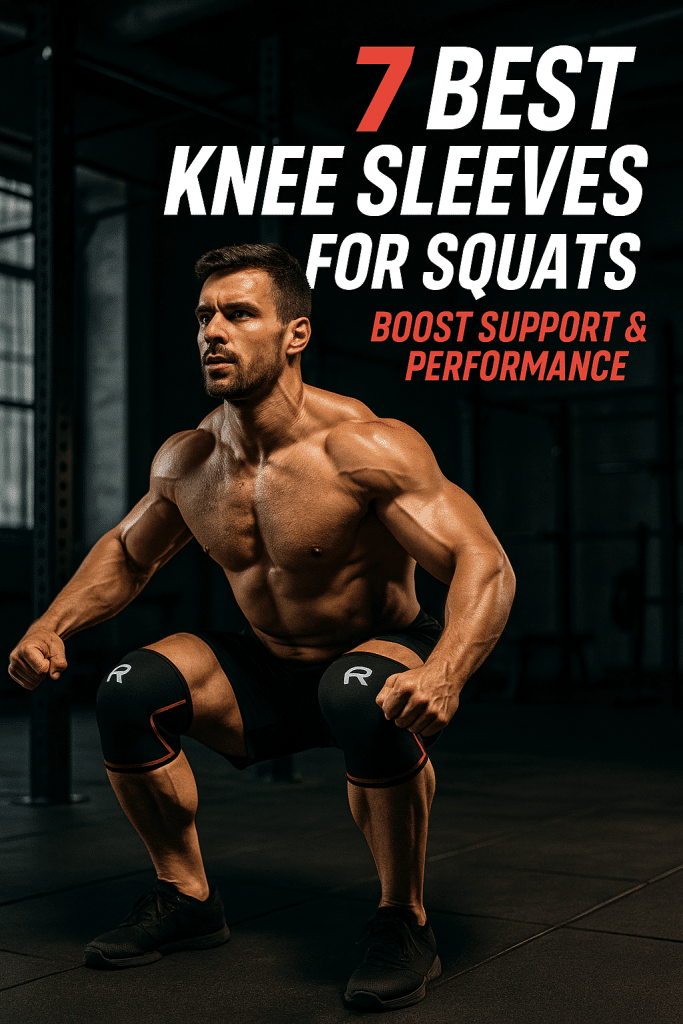If you’re serious about squatting and want to protect your knees while maximizing your performance, finding the best knee sleeves for squats is an absolute game-changer. Knee sleeves do far more than just keep your joints warm—they offer crucial compression that stabilizes the knee, supports proper biomechanics, decreases injury risk, and even helps with recovery. Whether you’re a powerlifter, CrossFit athlete, or an avid fitness enthusiast, choosing the right knee sleeves tailored to your training style and needs can make all the difference in your squat sessions.
In this detailed guide, I’ll walk you through why knee sleeves are essential for squat training, what to look for when choosing your pair, and provide comprehensive reviews of the top 7 knee sleeves on the market that combine durability, comfort, and performance. We’ll also explore how different thicknesses affect support and mobility, the science behind compression technology, and how to properly use and maintain your gear for long-lasting results. So, let’s dive in and find the best knee sleeves for squats that will support your journey to stronger knees and better lifts.
Why Knee Sleeves Are Essential for Squat Training
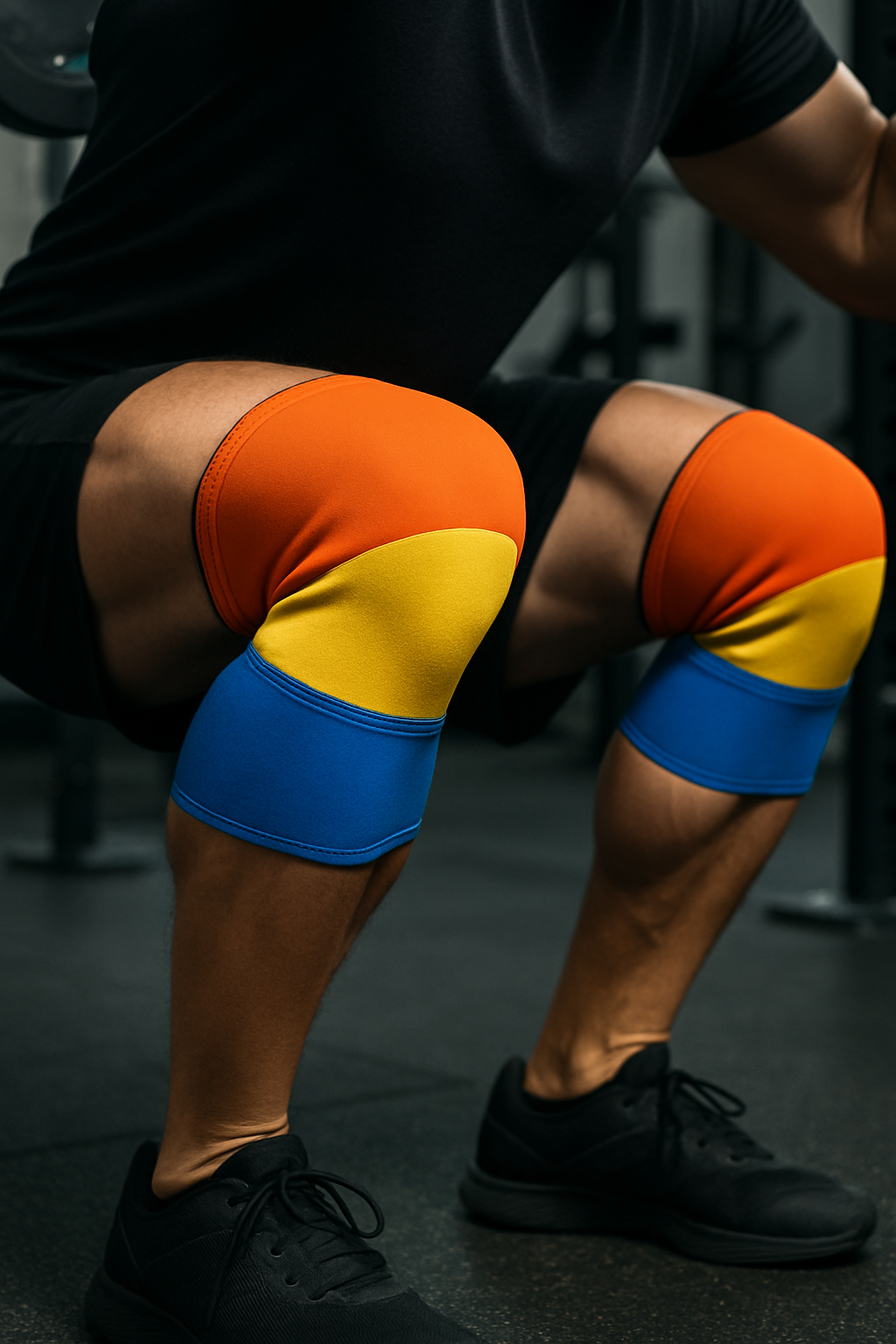
It’s tempting to overlook knee sleeves as just another accessory, but their benefits in squat training are backed by both scientific evidence and the real-world experiences of strength athletes. Here’s why knee sleeves are more than just a fashion statement in the gym:
The Role of Compression in Joint Stability and Injury Prevention
Knee sleeves work primarily through compression—this constant pressure around the knee joint provides several functional advantages:
-
Increased Proprioception: Compression enhances awareness of the joint’s position (“joint awareness”) which helps you maintain proper alignment during squats. This can reduce the risk of awkward kneecap tracking and poor biomechanics that cause injury.
-
Improved Synovial Fluid Movement: The pressure boosts blood flow and the distribution of synovial fluid inside the joint, aiding lubrication and cooling, which can ease discomfort and promote healthier joint tissues.
-
Reduced Swelling and Inflammation: By limiting fluid buildup post-workout, knee sleeves lower the chances of knee swelling and speed up recovery—a big plus if you squat heavy regularly.
-
Additional Support: Although not as rigid as knee wraps, compression sleeves provide a comforting “hug” around your knees that stabilizes the joint and helps manage the multidirectional forces during squats.
For example, in a study published in the Journal of Strength and Conditioning Research, athletes who wore knee sleeves during training reported reduced pain and improved joint stability.
How Knee Sleeves Enhance Squat Biomechanics and Muscle Activation
Proper knee function is critical for effective squats. Knee sleeves help by:
-
Keeping the joint warm and supported, which allows better activation of the quadriceps, hamstrings, and glutes.
-
Providing feedback that encourages deeper squats with safer mechanics, as the knee feels more secure to both mind and body.
-
Supporting gradual load progression by minimizing joint stress, which is key for increasing strength without setbacks.
Countless lifters have found that squats feel more confident and controlled with the right sleeves, especially when lifting near their max.
Differentiating Knee Sleeves from Knee Wraps and Braces
It’s important to distinguish between the types of knee support gear:
| Feature | Knee Sleeves | Knee Wraps | Knee Braces |
|———————|—————————————-|—————————————|————————————|
| Primary Function | Compression and warmth | Maximum tightness for explosive lifts | Joint stabilization or injury rehab|
| Material | Neoprene or neoprene blends | Elastic fabric, often cotton or nylon | Metal or plastic hinges, straps |
| Support Level | Moderate | High, can aid in adding weight support| Very high, immobilizes the joint |
| Usage | Suitable for daily training and recovery| Mainly for maximal lifts or competition | Medical or post-injury |
| Mobility | Allows good range of motion | Restricts knee bending when tight | Limits movement (depending on design)|
For squats, especially during regular training, knee sleeves provide the best balance of support and mobility. Wraps might be overkill unless you’re lifting maximal weights competitively, and braces should be reserved for injuries or rehabilitation phases.
Key Factors to Consider When Choosing the Best Knee Sleeves for Squats
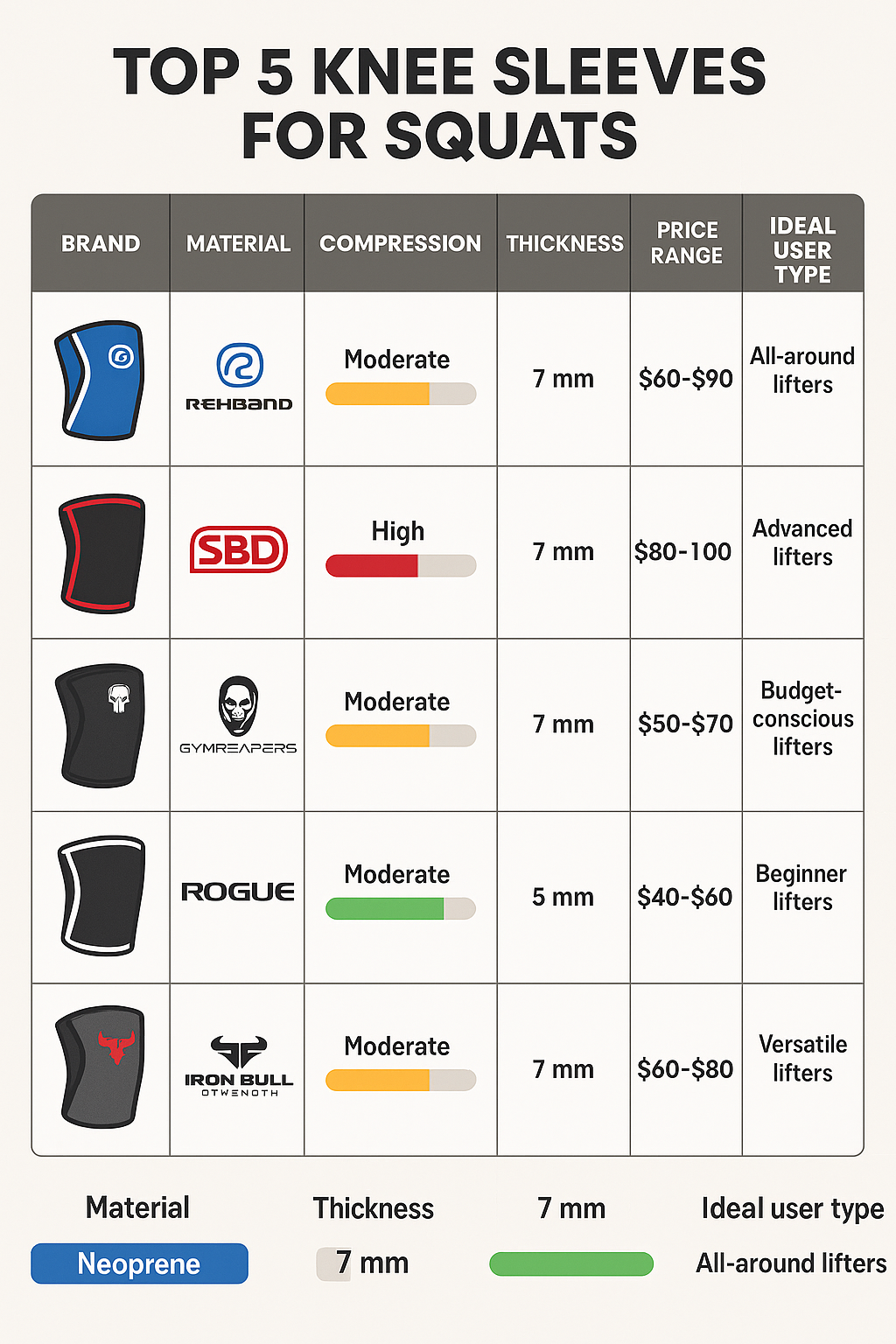
Navigating through all the options can be overwhelming, so let’s break down the most crucial elements that you should consider before committing.
Material Quality: Neoprene and Other Composites
Most top-grade knee sleeves are made from neoprene, a synthetic rubber delivering excellent elasticity, insulation, and compression. But the quality and density of neoprene vary:
-
Standard Neoprene Blends: Common in affordable sleeves, balance comfort and compression but may wear out faster.
-
High-Density Neoprene: Found in premium sleeves like SBD Powerlifting Knee Sleeves, offering superior compression and durability.
-
Triple Ply or Composite Fabrics: Brands like Nordic Lifting also explore triple-layer designs for better stiffness and longevity.
Look for sleeves that emphasize reinforced stitching and antimicrobial treatments to reduce odor and extend lifespan.
Thickness Matters: Comparing 3mm, 5mm, 6mm, and 7mm Sleeves
Sleeve thickness controls the level of support versus mobility:
| Thickness | Support Level | Recommended For |
|———–|————————-|——————————————–|
| 3mm | Light compression | Lightweight squatting, mobility-focused |
| 5mm | Moderate support | General training, CrossFit, moderate weight|
| 6mm | Balanced support/mobility| Hybrid use — heavy lifting and flexibility |
| 7mm | Maximum support/stiffness| Powerlifting, heavy squats, competition |
For instance, Gymreapers 7mm Knee Sleeves provide substantial joint warmth and compression favored by powerlifters, while Rogue Fitness’ 3mm versions suit those who prize mobility during squats.
Sizing and Fit: Ensuring Optimal Compression Without Restricting Mobility
Getting the right fit is paramount to performance and injury prevention. Too loose, and the sleeves won’t compress sufficiently; too tight, and they’ll limit movement and cause discomfort.
-
Measure the circumference around your knee cap with your leg extended.
-
Refer to the manufacturer’s sizing chart rather than guessing.
-
For highly dense 7mm sleeves, sizing down one level may provide more compression but requires careful attention to avoid over-tightness.
For example, SBD recommends sizing down for powerlifting but sizing up if your calves exceed your knee joint measurement by over 1.6 inches.
Durability and Stitching Reinforcement for Long-Term Use
Repeated stretching and heavy training can deteriorate poorly made sleeves. Look for:
-
Reinforced stitching especially around the seams.
-
Antimicrobial and odor-resistant materials to combat sweat build-up.
-
Washability with clear care instructions to maintain elasticity.
Brands like Gymreapers emphasize reinforced stitching that lasts through heavy use, a key feature you want for long-term investment.
Federation Certification and Competition Approval
If you compete, confirmation that your knee sleeves comply with federations like the IPF, USPA, or USAPL is crucial. Sleeve thickness and length must meet strict guidelines:
-
Both SBD Powerlifting Knee Sleeves and Gymreapers 7mm variants are IPF and USPA approved.
-
If you intend to compete, verify your sleeves’ certification.
Comprehensive Reviews: The 7 Best Knee Sleeves for Squats
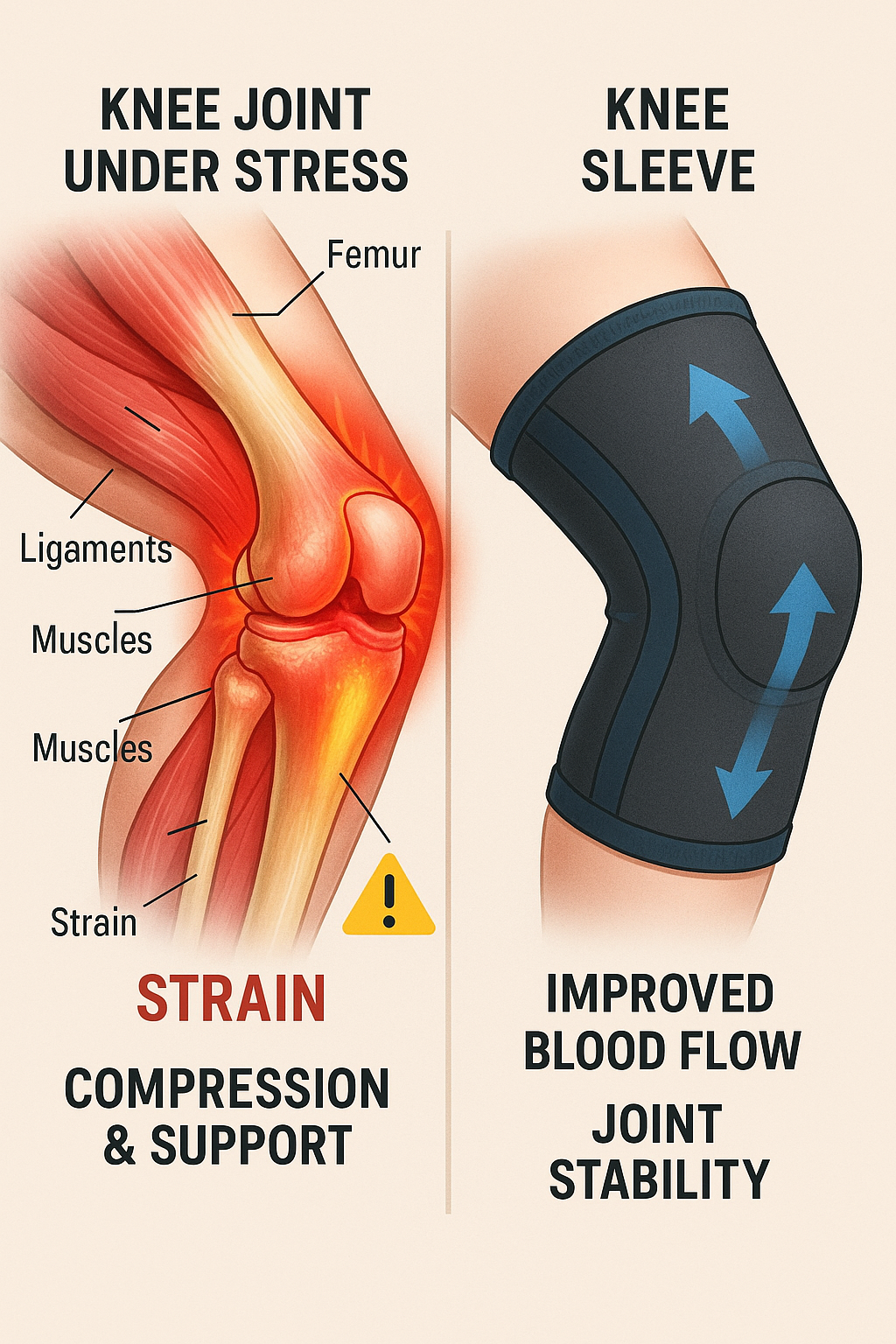
Let’s zero in on the cream of the crop with complete reviews based on features, pricing, user feedback, and expert opinions.
Gymreapers 7mm Knee Sleeves: Balanced Support and Competition-Ready Durability
Gymreapers delivers heavy-duty knee sleeves with a 7mm thick neoprene construction designed to enhance knee stability during intense lifts. Suitable for everyday training and sanctioned competitions thanks to IPF, IPL, USPA, and USAPL approvals.
- Pros:
- Excellent warmth and compression.
- Ergonomic fit contours well to the knee.
- Reinforced stitching for durability.
-
Available in various sizes and colors.
-
Cons:
- Might feel slightly restrictive for beginners.
-
Premium price point but justified by quality.
-
Use Cases: Powerlifters, heavy squatters, and competitive athletes.
Purchase Links:
Gymreapers Official Store
Amazon
SBD Powerlifting Knee Sleeves: Premier Compression and IPF Compliance
The gold standard for many competitive lifters, these 7mm high-density neoprene sleeves provide unmatched compression, with a snug fit throughout knee flexion. Manufactured in the UK with antimicrobial coating.
- Pros:
- Maximal support, ideal for extreme loads.
- IPF certified, meeting strict competition specs.
- Durable, with premium craftsmanship.
-
Great customer support and sizing guidance.
-
Cons:
- Pricey compared to average sleeves.
-
Sizing requires careful attention due to tight fit.
-
Use Cases: Elite powerlifters, heavy squatters, competitive lifters.
Purchase Link:
Official SBD Website
Rogue Fitness Knee Sleeves: Versatile Options for Performance and Comfort
Rogue Fitness offers a range of knee sleeves from 3mm to 7mm thickness, made from SBR/neoprene blends. Their sleeved options include the Hookgrip 2.0 for basic compression and Rehband RX for flexibility.
- Pros:
- Wide selection for all training levels.
- SBR/Neoprene blends balance comfort and support.
-
Available in multiple colors and sizes.
-
Cons:
- Slightly less durable for extremely heavy use.
-
3mm and 5mm versions may lack support for heavy squats.
-
Use Cases: CrossFit athletes, moderate lifters, general fitness.
Purchase Link:
Rogue Fitness Knee Sleeves
Bear KompleX Knee Sleeves: Ideal for CrossFit and Diverse Athletic Movements
Designed with athletes in mind, Bear KompleX offers 5mm and 7mm compression sleeves suitable for dynamic movements including squats, cleans, and box jumps.
- Pros:
- Great balance between support and flexibility.
- USPA approved.
-
Stylish designs and multiple retailers.
-
Cons:
- May not provide enough rigidity for powerlifting.
-
Limited color options compared to other brands.
-
Use Cases: CrossFit, Olympic lifting, functional fitness.
Purchase Link:
Bear KompleX Official Store (varied stock available via Box Basics, EliteFTS, and more)
Nordic Lifting Knee Sleeves: From Super Stiff to Triple Ply – Tailored for Serious Lifters
Nordic Lifting’s sleeves include a unique line of triple ply and super stiff models, catering to those seeking maximum support at the expense of some mobility.
- Pros:
- Diverse product line from lightweight to super stiff.
- Durable triple ply construction.
-
Suitable for heavy powerlifting and high-intensity training.
-
Cons:
- Heavier sleeves might limit mobility.
-
Pricing varies with heavier models more expensive.
-
Use Cases: Serious lifters, powerlifters, Strongman competitors.
Purchase Link:
Nordic Lifting Amazon Store
Element 26 6mm Knee Sleeves: Perfect Blend of Support and Mobility
Element 26’s 6mm sleeves are increasingly popular for offering solid compression with more flexibility compared to 7mm models.
- Pros:
- Excellent balance between mobility and support.
- Durable neoprene build.
-
Suitable for squats, deadlifts, and CrossFit workouts.
-
Cons:
- Not IPF certified.
-
Limited color range.
-
Use Cases: Athletes requiring versatile compression without sacrificing mobility.
Purchase Link:
Element 26 Official Website
Iron Bull Strength Knee Sleeves: High Compression with Anti-Slip Design
Iron Bull Strength offers durable, high-compression 7mm sleeves with a contoured 3-D design and anti-slip grip to prevent slippage during workouts.
- Pros:
- Affordable compared to other high-performance sleeves.
- Anti-slip design improves stability on the knee.
-
Tested for use in serious training.
-
Cons:
- Slightly less refined fit than premium competitors.
-
Not certified for official competitions.
-
Use Cases: Heavy squatters seeking support with budget considerations.
Purchase Link:
Iron Bull Strength Official Store
Amazon
Addressing Different Training Goals with Knee Sleeves
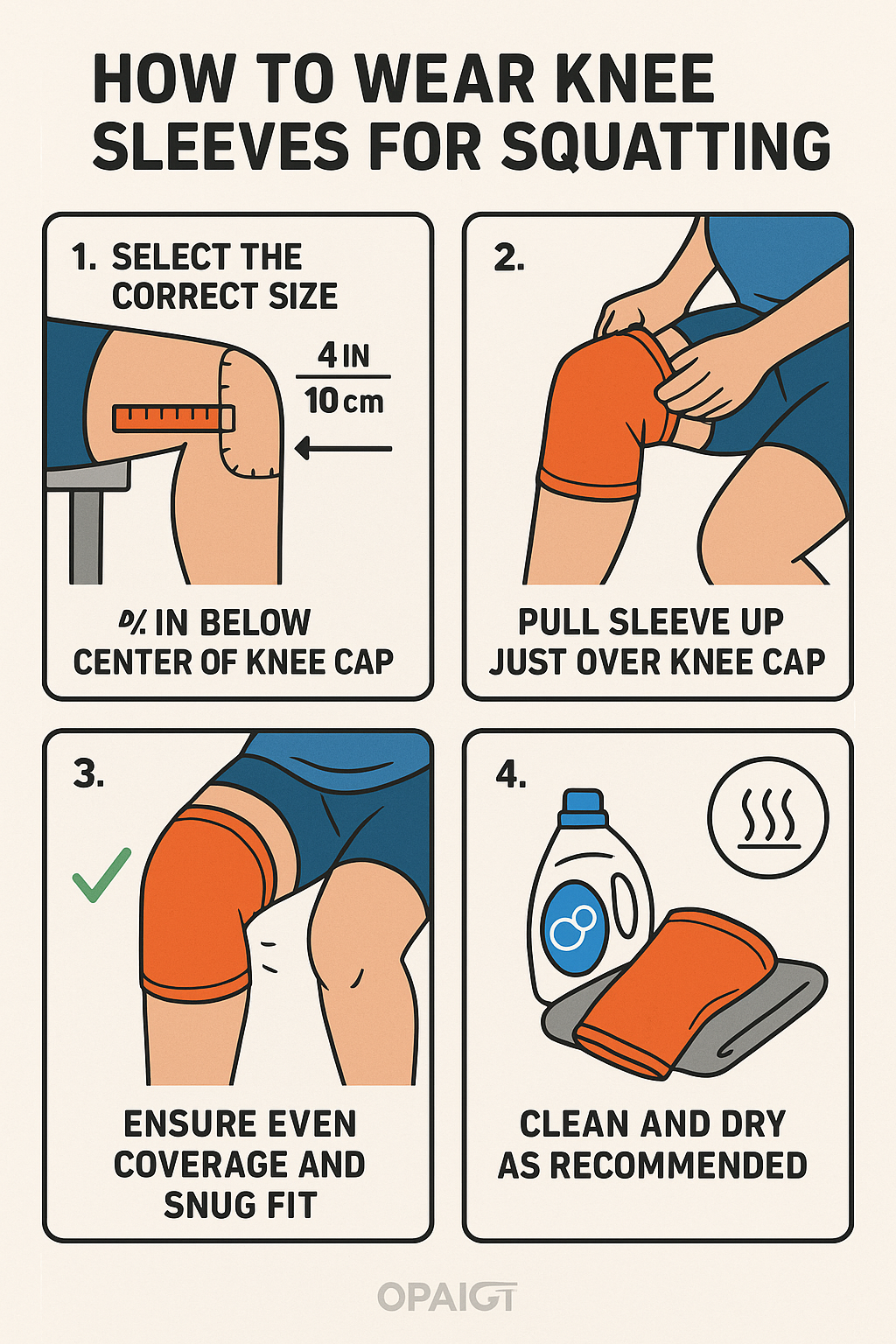
Your ideal knee sleeves depend heavily on your training goals and preferences:
Best Knee Sleeves for Heavy Squats and Powerlifting
Opt for 7mm high-density neoprene sleeves such as Gymreapers and SBD, which provide maximal joint support, warmth, and meet federation standards. These are perfect for pushing personal records with confidence and safety.
Lightweight and Breathable Options for Extended Training Sessions
If you need knee sleeves for long sessions or mobility-heavy workouts like CrossFit, 3mm or 5mm neoprene sleeves from Rogue or Bear KompleX are ideal. They provide warmth and compression but don’t overly restrict motion or cause overheating.
Affordable Knee Sleeves That Don’t Compromise on Support
The Iron Bull Strength 7mm sleeves offer a cost-effective solution, balancing compression, durability, and anti-slip grip, making them great for those on a budget but serious about knee health.
Knee Sleeves Tailored for CrossFit and Functional Fitness Movements
Bear KompleX sleeves and Rogue’s 5mm versions strike a balance between protection and flexibility, designed to handle dynamic movements beyond squats, including cleans and jumps.
The Science Behind Compression and Recovery: How Knee Sleeves Aid Squat Recovery
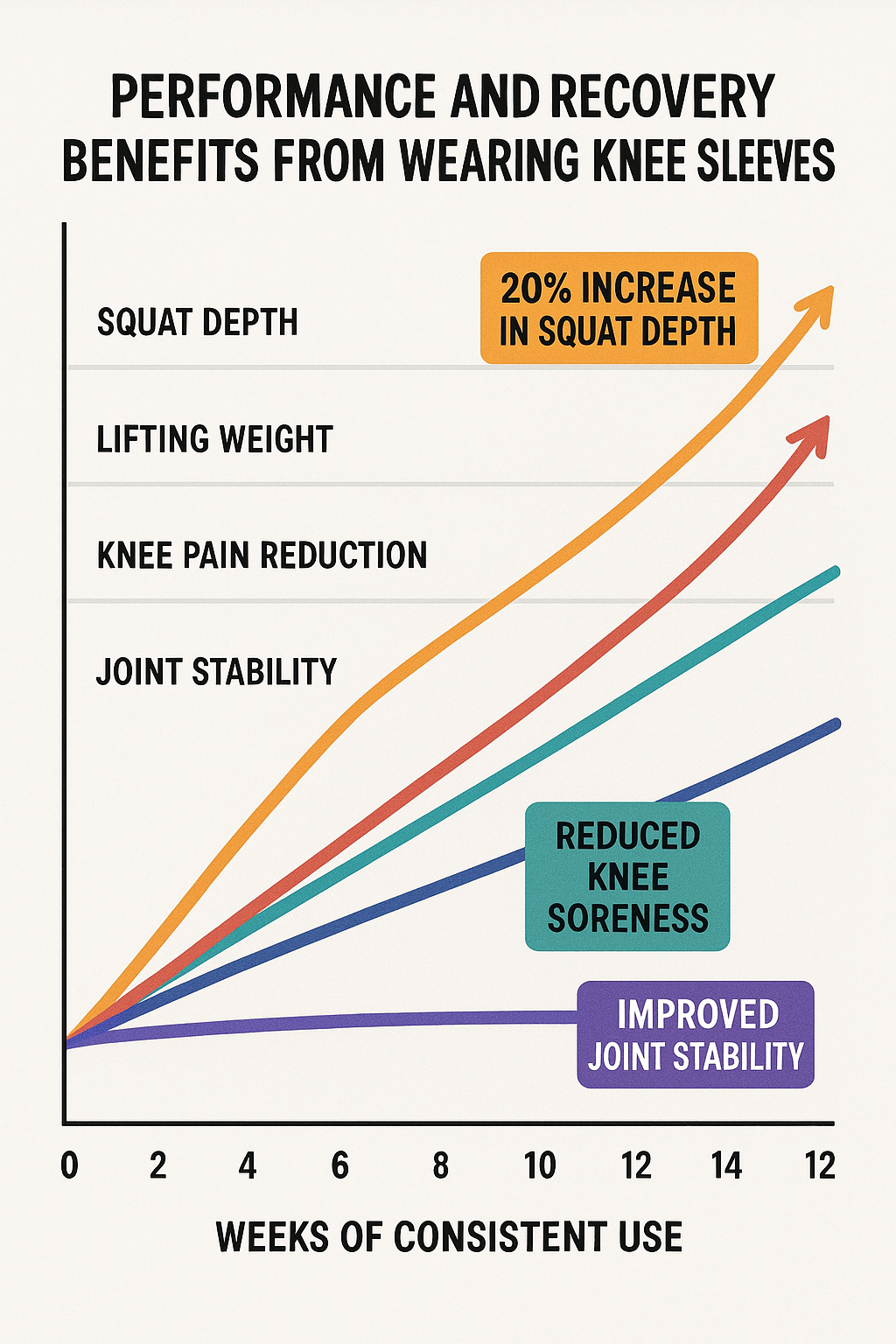
Compression knee sleeves aren’t just for in-training support—they actively enhance recovery by:
Improving Blood Flow and Reducing Inflammation
The consistent compression helps promote venous return—improving circulation to flush out metabolic waste and reduce inflammatory processes post-exercise. This speeds up healing and decreases soreness.
Enhancing Proprioception and Joint Awareness During Lifts
Better joint perception means you engage muscles more effectively, decreasing injury risk and encouraging proper movement patterns, both critical for quick recovery cycles.
Promoting Faster Recovery and Injury Prevention
Continuous use of knee sleeves during training and recovery phases protects damaged tissues, supports mild injuries, and prevents future strain by stabilizing mechanics over time.
Proper Use and Care: Maximizing the Lifespan of Your Knee Sleeves
To get the most out of your knee sleeves:
Correct Application Techniques for Consistent Compression
- Slide sleeves up with a downward rolling motion.
- Ensure the sleeve sits over the knee cap, not below it.
- Avoid overstretching to maintain material integrity.
Cleaning, Maintenance, and Storage Tips
- Hand wash with mild detergent or neoprene cleaner.
- Air dry away from direct sunlight or heat.
- Store flat or rolled—never folded at sharp angles.
When to Replace Your Knee Sleeves for Optimal Performance
Signs it’s time for a new pair include:
- Loss of compression and stretch.
- Noticeable tears or stitching failure.
- Slippage during squats or exercises.
Regular inspection ensures your sleeves are supportive and comfortable.
Unique Buying Considerations: Integrating Biomechanical Insights into Knee Sleeve Selection
Tailoring Sleeve Choice to Squat Technique Variations
Different squat styles (high-bar, low-bar, front squat) place varying stresses on the knee. Select sleeves that complement your biomechanics—for example, stiffer sleeves for low-bar heavy squats that load more knee torque.
Considering Individual Joint Mechanics and Mobility Needs
Assess your joint flexibility and any existing conditions. If your knees are prone to instability or injury history, opt for thicker, more compressive sleeves. Those with hypermobility may benefit from sleeves emphasizing proprioception without tight compression.
Merging Durability with Comfort for Sustainable Training
A sleeve is only as valuable as its comfort during repeated use. Prioritize reinforced yet breathable designs that facilitate extended wear without irritation.
Conclusion: Selecting the Best Knee Sleeves for Your Squat Performance and Longevity
Choosing the best knee sleeves for squats is an investment in your joint health, lifting confidence, and athletic longevity. Whether you are a competitive lifter, CrossFit enthusiast, or weekend warrior, the right knee sleeves will support proper biomechanics, reduce injury risk, and aid recovery to keep you squatting stronger over time.
From the uncompromising compression of the Gymreapers 7mm and SBD Powerlifting sleeves to the versatile comfort of Element 26’s 6mm models and the affordability offered by Iron Bull Strength, there’s a perfect pair out there for you. Remember to evaluate your training style, support needs, and fit carefully. Don’t forget proper application and maintenance, because a well-cared-for sleeve is your best training partner.
Now it’s time to gear up, protect those knees, and crush your squat goals with confidence! Check out the links, try a recommended pair, and experience the difference quality knee sleeves can make in your lifting journey.
FAQs About the Best Knee Sleeves for Squats
1. What thickness knee sleeves are best for heavy squats?
For heavy squats, 7mm neoprene knee sleeves offer maximum support and compression, ideal for powerlifting and competition. Brands like Gymreapers and SBD are excellent choices.
2. Can I use knee sleeves for both squats and deadlifts?
Absolutely! Knee sleeves provide joint support and warmth beneficial for both squats and deadlifts. A 5mm or 6mm sleeve often balances support and mobility well for these lifts.
3. Are all knee sleeves approved for competition?
No, not all are competition-approved. If you compete, select sleeves certified by federations like the IPF or USPA, such as those made by SBD or Gymreapers.
4. How do I measure my knees properly for the right sleeve size?
Measure the circumference around your knee cap with your leg extended and muscles relaxed. Always consult the brand’s sizing chart for the best fit.
5. Do knee sleeves help with squat injury prevention?
Yes, by enhancing knee stability, reducing inflammation, and improving proprioception, knee sleeves reduce the risk of injury during squats and support faster recovery afterward.
Quick Takeaways
- Knee sleeves provide essential compression and warmth that support squat biomechanics and joint health.
- Selecting the right sleeve thickness depends on your training intensity—3mm for mobility, 7mm for heavy lifting.
- Proper sizing ensures effective compression without movement restriction.
- Top brands like Gymreapers, SBD, Rogue Fitness, and Bear KompleX offer durable, high-performance knee sleeves.
- Certification matters if you plan to compete; always verify federation approval.
- Regular maintenance and correct application prolong knee sleeve lifespan and effectiveness.
- Integrate biomechanical considerations and personal mobility for optimal sleeve choice.
Ready to find your perfect pair and experience all the benefits firsthand? Visit the official sites linked above and make an informed choice to elevate your squat performance safely and effectively!

